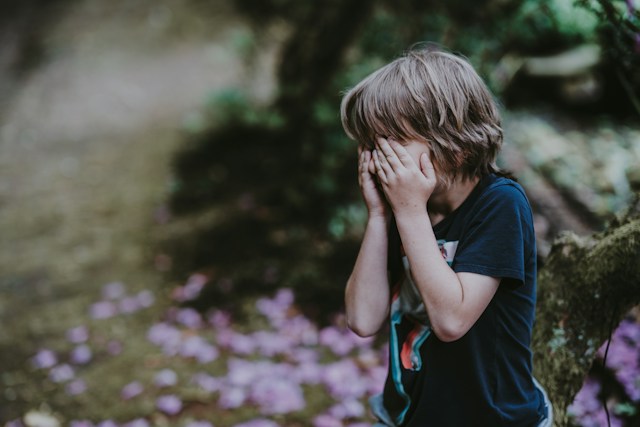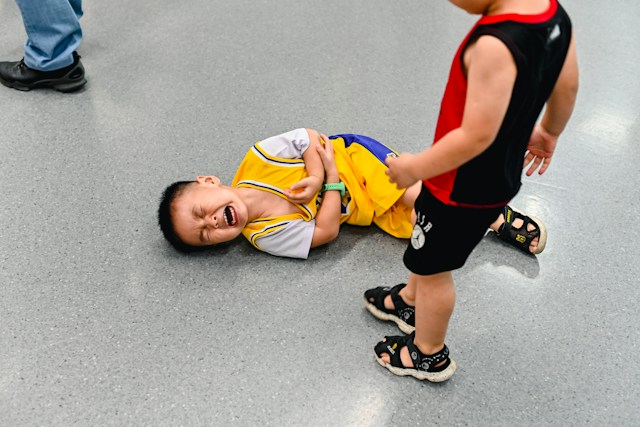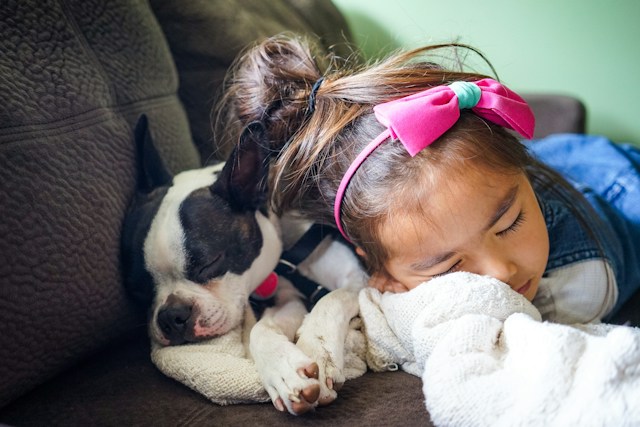The formative years are critical for social, psychological, and emotional growth. It can, however, be tarnished for certain kids by terrible events that permanently damage their mental health. We will examine childhood trauma’s definition, kinds, symptoms, and the significant effects it may have on children’s mental health in this extensive guide. Furthermore, we will explore efficacious tactics and remedies to tackle childhood trauma and assist kids on their journey towards recovery.

Childhood Trauma: What Is It?
Childhood trauma refers to unfavourable experiences or incidents that occur throughout a person’s early years, often before the age of 18. These traumatic events can be physically or emotionally upsetting, upsetting a child’s feeling of security, safety, and general well-being.
Trauma may be brought on by a single event or a chain of ones, and it can be brought on by several things, such as being abused or neglected, having an accident, being in a natural catastrophe, or seeing violent acts.
Kinds of Trauma in Childhood
Physical Abuse: Physical abuse is when a parent, carer, or other authority figure purposefully hurts or harms a kid. It can show up as any kind of physical aggression, including kicking, striking, and burning.
Emotional Abuse: This type of abuse is defined by recurring patterns of psychological or verbal mistreatment, such as threats, humiliation, and unceasing criticism. It can seriously harm a child’s emotional health and sense of self.
Sexual Abuse: Any adult who forces non-consensual sexual behaviour on a child commits sexual abuse. It may manifest as rape, molestation, or exposure to pornographic media. Sex abuse can cause severe psychological and emotional distress.
Neglect: When a child’s fundamental needs—like food, housing, medical attention, and emotional support—are routinely ignored, it is considered neglect. Children who are neglected frequently experience emotional and physical abuse, which can result in a variety of mental health problems.
Seeing Violence: Trauma can occur in children who witness acts of household or communal violence. Exposure to violence in the family or community can cause children to feel afraid, helpless, and insecure.

Natural Disasters: A child’s feeling of comfort and safety might be shaken by events such as storms, floods, or earthquakes. These kinds of situations can create trauma, which can lead to post-traumatic stress disorder (PTSD), sadness, or anxiety.
Indices of Adverse Childhood Experiences
Early management and treatment require an understanding of its symptoms. While each child’s response to trauma will differ, some typical symptoms include:
Modifications in Behaviour:
a) Withdrawal or aggression b) Regression to previous developmental stages c) Difficulty focusing or going to school
Emotional Anguish:
a) Phobias, anxiety, or overwhelming terror
b) Persistent melancholy or depression c) Mood fluctuations or unstable emotions
Symptoms in the body:
a) Headaches or stomachaches for which there is no obvious medical reason
b) Disturbances in sleep, such as nightmares or chills

Social Challenges:
a) Difficulty establishing and sustaining relationships b) Withdrawal or seclusion from family and peers c) Low self-worth and self-esteem
Cognitive Deficits:
a) Memory problems or cognitive processing issues
b) Difficulties addressing problems
c) Persistently troubling recollections or thoughts
How can Childhood Trauma affect mental Health?
If not handled, it can have a lasting impact on a child’s mental health that could last far into adulthood. Childhood trauma can affect mental health in several ways, including:
Post-Traumatic Stress Disorder (PTSD): Severe anxiety, nightmares, and flashbacks are symptoms of PTSD, which can be brought on by traumatic experiences. PTSD in children can cause intrusive recollections of the event, which makes day-to-day functioning difficult.
Depression: Experiencing trauma as a child raises the likelihood of developing depression. Traumatised children may suffer from enduring depressive and dismal sentiments as well as a lack of interest in once-enjoyed hobbies.
Anxiety Disorders: Children who have suffered trauma are more likely to suffer from generalised anxiety disorder, social anxiety disorder, and particular phobias. The persistent anxiety and panic linked to these conditions might impede a child’s day-to-day activities and ability to operate.
Dissociation: As a coping strategy to separate from the traumatic events, some kids may have dissociative disorders. One may become detached from their ideas, emotions, or environment as a result of this.
Suicidal thoughts and self-harm: Trauma can exacerbate self-destructive behaviours including suicidal thoughts and self-harm.
Youngsters who are experiencing overwhelming emotions may turn to self-harm as a coping mechanism.
Substance Abuse: In an attempt to dull their emotional suffering, trauma sufferers may abuse drugs or alcohol. Substance misuse can make mental health problems worse.
Impaired Relationships: It might be difficult to establish healthy relationships as a result of trauma. Children may experience difficulties with communication, closeness, and trust, which may affect how they develop socially and emotionally.
How to Address Childhood Trauma?
A multidisciplinary strategy including the kid, their family, and a network of helpful specialists is necessary to address it. The following are some essential tactics for treating childhood trauma:
Establish a Safe setting: Make sure that the youngster lives in a stable and safe setting. This entails giving them a safe place to live and taking them out of harmful relationships.
Seek Professional Assistance: Speak with psychologists, counsellors, or therapists who specialise in trauma-focused treatment if you need mental health assistance. Evidence-based therapies have the potential to be successful, such as Trauma-Focused Cognitive-Behavioral Therapy (TF-CBT).
Create a Support System: Assist the youngster in creating a solid support system comprised of dependable people, such as mentors, friends, and family. Resilience and healing can be promoted by supportive connections.
Teach your kid mindfulness and relaxation strategies to help them cope with stress and anxiety. These approaches could include deep breathing exercises and mindfulness.
Management of Medication: Medication may occasionally be recommended to treat anxiety or depressive symptoms. Speak with a child psychiatrist about the best course of action.
Family therapy: To address any dysfunctional dynamics and promote healing, involve the entire family in treatment sessions. The child’s recuperation may benefit greatly from family assistance.
School-Based Interventions: Work together with educators and school counsellors to assist the child’s emotional needs while attending school and provide allowances for their academic performance.
Track Progress: Keep a close eye on the child’s development and modify the treatment plan as necessary. Recovery is a slow process with potential setbacks.
Summary
A child’s mental health and general well-being are significantly and permanently impacted by childhood trauma. Helping children on their journey to healing requires identifying the symptoms and acting quickly to treat them. Through the provision of a secure atmosphere, the pursuit of expert assistance, and the cultivation of encouraging connections, we may enable kids to surmount the aftermath of trauma and construct more promising futures. Regardless of their prior experiences, we all must make sure that every child gets the chance to flourish.
You may also like:
Is Your Child’s Screen Time Stealing Their Future? Here’s What You Need to Know

Pingback: Dyslexia: Everything You Need To Know | FactsAll
Pingback: How to Limit Screen Time & Boost Your Child’s Mental Health | FactsAll
A North Dakota license plate search allows you to access information about a vehicle registered in the state using its license plate number. This search can provide details such as the vehicle’s make, model, year, and VIN, while personal owner information remains protected by privacy laws. You can perform these searches through the North Dakota Department of Transportation (NDDOT) or authorized third-party services. This service is useful for verifying vehicle information, researching a car’s history, and investigating legal issues, ensuring compliance with privacy regulations.